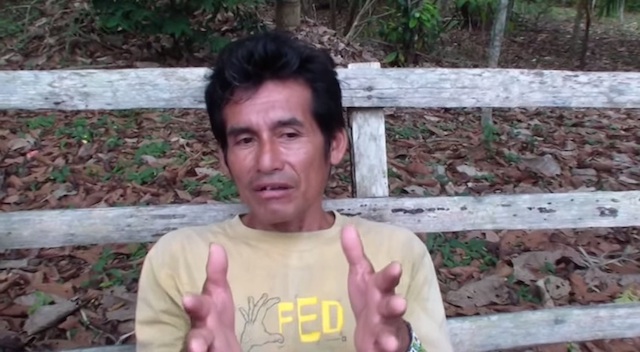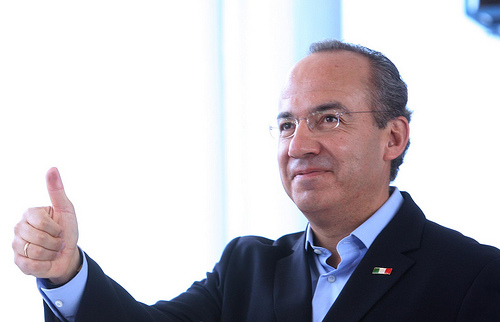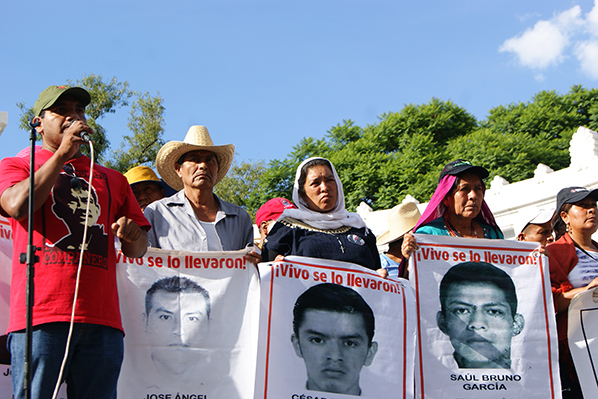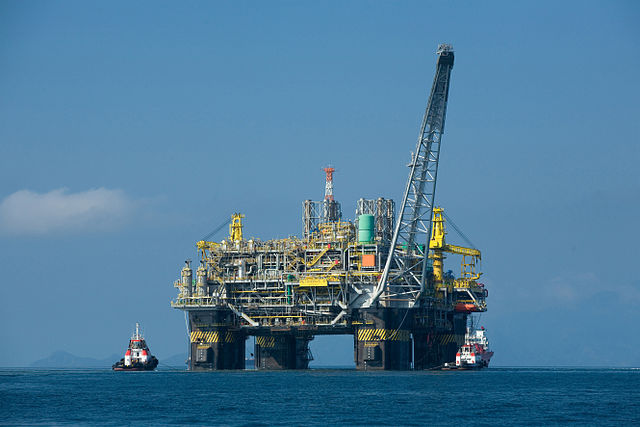
Andes, Latin America: Week in Review, Peru
Report Highlights Activist Murders in Peru Ahead of Lima Climate Talks
November 18, 2014 By Staff
Top Story — Just two weeks before the U.N. Climate Change Conference begins in Lima, Peru, nonprofit Global Witness has released a widely publicized report naming the country the fourth deadliest in the world to be an environmental or land activist. Since 2002, 57 activists have been killed in Peru, more than half of them in the last four years.
Peru is facing international scrutiny due to the slow pace of an investigation into the Aug. 31 killing of four indigenous environmental activists in the Amazon jungle, including the Asháninka tribal leader and prominent anti-logging activist Edwin Chota.
Two accused illegal loggers were arrested in the case, though the four victim’s widows have said that the investigation into the killings has been stalled. Officials claim that there isn’t enough money for a helicopter to visit the remote village near where the men were killed, and only two of the bodies have even been recovered.
The widows’ statements came amid criticism of Peru’s environmental policies ahead of the U.N climate conference. On July 3, in an attempt to attract investment into the country’s large extractive industry sector, the Peruvian Congress passed several controversial laws that critics warn drastically weaken environmental protections.
The paquetazo – a reference to similar reforms in the 80s and 90s – has been criticized by the U.N. for allegedly limiting the Ministry of Environment’s regulatory power. The package of laws stipulates the ministry prioritize “preventative” policies over disciplinary actions, and gives tax breaks to large, multinational mining firms, who own mining rights to more than half of the land area of some Peruvian states.
As competition for natural resources increases, so too has violence against environmental activists across the globe, according to the Global Witness report, which also notes that ordinary people are more frequently having to protect their land from “corporate and state abuse.”
The U.N. climate conference in Lima is the last meeting before the body attempts to sign a new global treaty in Paris next year.
Headlines from the Western Hemisphere
North America
- The Nation explores the numerous mass graves that have been discovered in Mexico since the search for the 43 missing students began, none of which have contained the students’ remains and are evidence of larger issues of violence and clandestine burials in the country.
- Alfredo Beltran Leyva, a Mexican drug lord indicted in 2012, made his first appearance in a U.S. court on Monday after his extradition from Mexico over the weekend.
- The Mexican police officer arrested for his involvement in a shooting that left a student wounded over the weekend will face criminal charges, including abuse of authority.
Caribbean
- Haiti’s police force, long considered abusive and inefficient, is working to reinvent itself and rebuild ties with citizens as the U.N. reduces its number of peacekeeping troops in the country.
- The New York Times editorial board decries a U.S. program that encourages defections by Cuban doctors to the U.S. during missions overseas, a policy the board argues is particularly ironic given recent U.S. praise of Cuban doctors’ work combating Ebola in West Africa.
- Some Puerto Rican churches in New York City are seeing their congregations dwindle as new Latin American migrants worship elsewhere.
- A Puerto Rican court dropped domestic violence charges against Puerto Rican reggaeton star Don Omar on Monday when his girlfriend failed to appear in court after accusing him of hitting her and threatening her with a gun in September.
Central America
- Insight Crime investigates the weakness of El Salvador’s judicial process, as evidenced by the exoneration of an alleged cartel leader who was accused of running a luxury car theft ring.
- Four men have been detained for questioning in Honduras regarding the disappearance of Maria Jose Alvarado, who was crowned Miss Honduras 2014 in April, and her sister, who were last seen on Nov. 13.
Andes
- InSight Crime considers who may have kidnapped a Colombian army general, an incident that forced the suspension of negotiations between the FARC and Colombian government on Monday, noting that regardless of whether the kidnapping was sanctioned by FARC leadership or a rogue unit, Colombia’s military leaders themselves have much to lose in the event of the peace talks’ success.
- The non-profit Reporters Without Borders has urged the Colombian government to protect Oscar Castaño Valencia, a journalist who was beaten and threatened while investigating childhood prostitution in north-west Colombia, and whose case points to the dangers faced by journalists in the country.
- Venezuela’s President Nicolás Maduro announced on Monday that the country is working to organize a meeting of oil-producing countries to discuss falling petroleum prices, a trend OPEC powerhouse Saudi Arabia has said it will not seek to reverse.
Southern Cone
- The head of Brazil’s Petrobras announced plans to increase transparency and combat corruption within the state-run oil company, the executive’s first public announcement since authorities arrested 27 people on Nov. 14 in connection with a corruption investigation.
- A photo essay at The Guardian looks at Brazil’s 19th annual gay pride parade in Rio de Janeiro, which attracted thousands of participants on Monday.
- Argentina announced the creation of a new government agency to track the price and quantity of the country’s imports and exports, two weeks after authorities accused U.S. household products company Procter & Gamble of evading $138 million in taxes.
Image: Youtube
Subscribe to Today in Latin America by Email






2 Comments
Its absolutely disheartening to know the price that these environmentalists pay in order to protect something that all of us call home. With the upcoming climate-change conference held in Peru, let’s hope that the government will address this important cause and the rights of the activists who are fighting for it.
Hopefully the sacrifice of Chotas and the other activists dont go to waste and act as a huge awakening for the Peru government and the stricter laws that are needed to protect protect both the forests and the people. As Alex Soros, founder of the Alexander Soros Foundation says,
“Global demand for natural resources is growing, and indigenous people are receiving little protection from those who would destroy their land, forests, and rivers. Instead, they are being murdered with impunity at an alarming rate, sometimes with the complicity of government authorities.”
Learn more about Soros’ remarks here – its worth a read http://www.project-syndicate.org/commentary/peru-deforestation-indigenous-land-rights-by-alex-soros-2014-11#oX468TxcmUxJ6KUI.99
[…] has also become increasingly dangerous for environmentalists. A recent report by nonprofit Global Witness named the country as the fourth […]
Comments are closed.